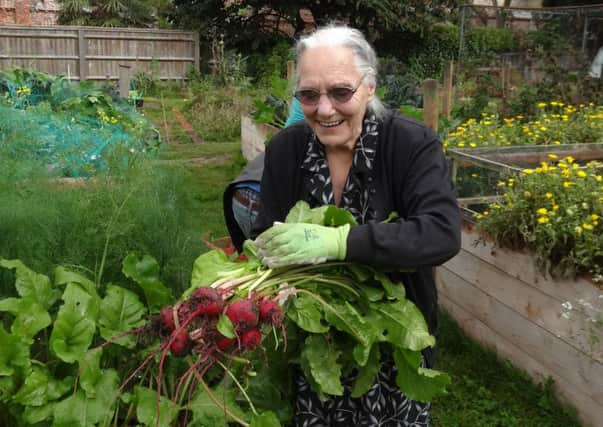Gardening has major benefits for all


Sussex Community Foundation has funded many community gardens over the years, including Moulsecoomb Forest Garden, the Better Braybrooke Pocket Park in Hastings, Petworth Community Garden and others, many of which have been set up with therapeutic and other benefits at their hearts. At Plot 22 in Hove, participants frequently describe it as ‘a sanctuary space’, ‘a magical healing garden’, ‘a place of inspiration and connection’ and ‘a welcoming haven’.
The Grow Chichester project, part of Transition Chichester, received a grant of £2,500 from our Cragwood Fund to support their work, developing the Bishops Palace Gardens’ vegetable plot. Two beneficiaries of the scheme are Ray Stewart and his mother Doreen (pictured).
Advertisement
Hide AdAdvertisement
Hide AdRay and Doreen moved into sheltered accommodation eighteen months ago. Ray had to take early retirement from his work as an engineer, due to early onset Parkinson’s disease. His mother, who is 86, is his carer. Before his illness, Ray was a very keen gardener who managed a large garden.
When he moved to sheltered accommodation, Ray began to suffer from depression and his health deteriorated sharply. He found out about the Grow Chichester project through a poster at the garden’s entrance. Since then, Ray and his mother have attended gardening sessions regularly and have made a big difference to the garden. Ray now has his own patch where he experiments with no-dig and permaculture techniques. He is also a mine of information about all things gardening, and shares his knowledge with other participants.
Grow Chichester’s therapeutic horticulturalist has worked with Ray to harness his strengths and to ensure that he does not overdo things. His consultant at St Richard’s Hospital has indicated that Ray’s general health and short-term memory have improved considerably since he became involved with the garden. Doreen also is actively involved and has made a circle of friends since she started to attend. The garden is very much a focal point for both their lives.
The next deadline for grant applications to Sussex Community Foundation – and the Cragwood Fund - is Friday 15th July. www.sussexgiving.org.uk/apply